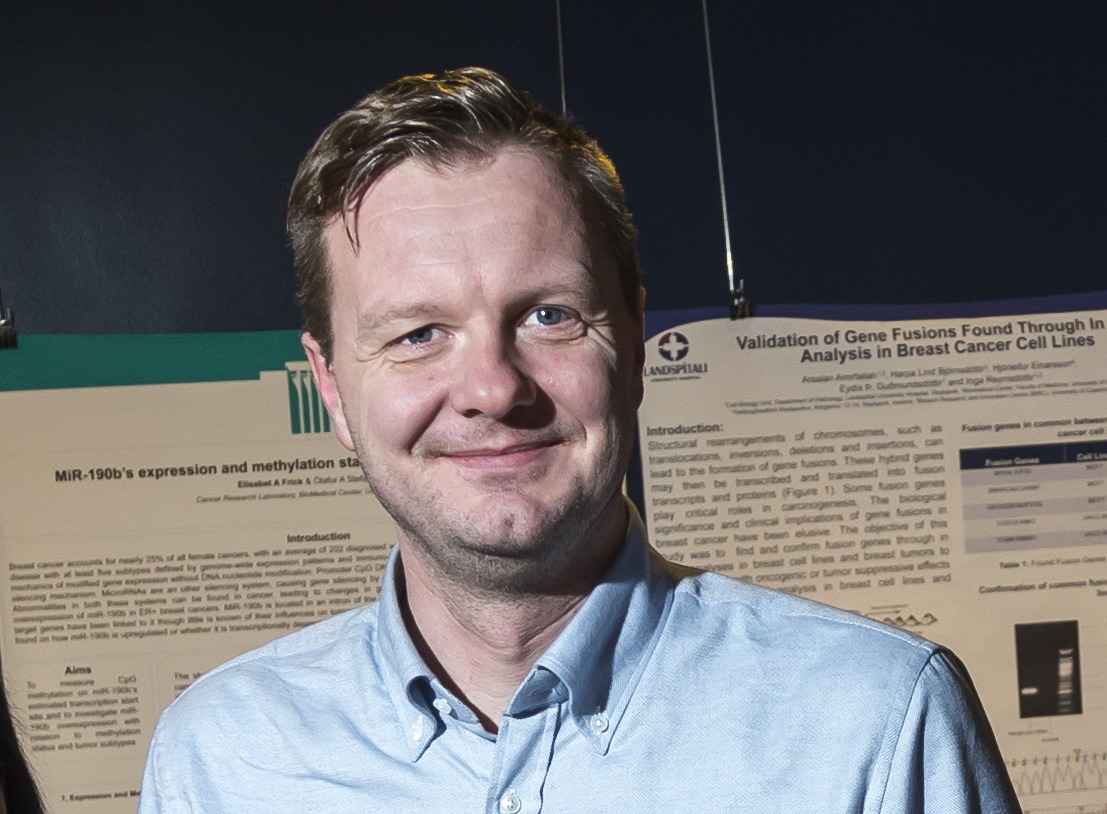New knowledge created at the University of Iceland has diverse value. Research can lead to discoveries that improve the quality of life for all, in addition to being an asset to tackle diverse challenges such as the threat to the biosphere, peoples' health, rapid changes in technology and upheavals in our environment.
Environmental changes are by many considered the main challenge for the human race in the decades to come. Research scientists have time and time again pointed out that the consequences of environmental changes can transform living conditions here on earth for the worse.
The new Strategy of the University of Iceland, UI26, emphasizes environmental issues and a joint effort to achieve the UN Sustainable Development Goals on a broad level. The strategy covers carbon footprint which is used to measure the results of the goal in sustainability in university operations, especially in the field of transportation.
What is this carbon footprint everyone is talking about? Carbon footprint is a kind of a metaphor reflecting the impact of something or someone; e.g. an individual's, or the production or consumption of a certain product on the earth's climate over whole year. The carbon footprint thus reflects the total emission of greenhouse gases caused by a certain element on an annual basis. The carbon footprint is in fact the footprint left by a certain factor in the same way we leave a footprint on the ground.
Mapping Icelanders' carbon footprint
Þórhallur Ingi Halldórsson, professor of nutrition at the University of Iceland, is currently mapping the carbon footprint caused by Icelanders' dietary regime and analysing what factors are the most prominent.
"We are studying where we can implement sustainability better into dietary recommendation," says Þórhallur Ingi. "Such recommendations are currently only based on health, not sustainability."
Here Þórhalur mentions sustainability, another vital concept in the study. Sustainability not only applies to the environment, but also social justice, health and well-being, culture and economy. Behind it lies the knowledge of the limits nature sets the human race. We must not extract more from natural resources than nature can fully renew. This implies the ideology to turn the Earth over to the next generation better than it was received.
Þórhallur says that he and his team are concurrently mapping the carbon footprint of domestic food production in order to see what can be improved in the process with a view to greenhouse gas emission and other factors.
"Food production currently has a large and powerful impact on greenhouse gas emission; both directly and indirectly," says Þórhallur and talks about clearing of forests and destruction of the environment for agriculture and food production.
"It has been evident for a long time that sustainability must weigh heavier in how we produce and consume food. It is widely discussed but little is done about it. Those of us involved in this project believed that we can gather important data as an input into this discussion and strategic planning, but also to develop methodology in this field. We also study consumer sentiment and the economic impact of making production and consumption sustainable."
Working for international institutions such as WHO and EFSA
Þórhallur Ingi has, for the past six years, worked hard for international agencies such as the European Food Safety Authority (EFSA) and the World Health Organisation (WHO) on issues concerning food safety, as well as providing varied consultation and research for domestic and international institutes. Þórhallur places more and more emphasis on including different fields of study in his projects and research. He believes that interdisciplinary collaboration is the key to success in research; when diverse factors are taken into account as is the case in his latest ones on sustainability and the carbon footprint. It is not possible to solve with one discipline or its viewpoints. This is in line with the the new strategy at the University of Iceland where the emphasis is on working across schools, and eliminating hindrances for the collaboration of diverse fields of study.
"What is so important in this research is that those who lead this with me have much more knowledge in various fields concerning the project, such as sustainability, nutrition, food production and various aspects of social sciences and economics."
"It has been evident for a long time that sustainability must weigh heavier in how we produce and consume food. It is widely discussed but little is done about it. Those of us involved in this project believed that we can gather important data as an input into this discussion and strategic planning, but also to develop methodology in this field. We also study consumer sentiment and the economic impact of making production and consumption sustainable," says Þórhallur Ingi Halldórsson, professor of nutrition at the University of Iceland.

Want to make discussions more accurate and focused
When asked about the reasons behind the study, Þórhallur Ingi esplains that the there were no clear parameters in place nor official statistics or clear cut facts about the status of these issues here in Iceland. When the facts are fluid it is easier to come up with statements that are not true, so this study is a very important tool in the battle against fake news and to reduce information chaos in this field. This research is thus in line with the University's new strategy which states that the University shall fight against the impact of fake news by providing research, data and expertise thus supporting official policy and strengthening democratic discourse. This research focuses on all this.
"The discussion in Iceland is often driven by opinions and vested interests, as happens when reliable data is lacking. We just want to provide discussion based on facts, not feeling," says Þórhallur Ingi.
Meat is big in Iceland
And then on to the million dollar question? What is our carbon footprint? Are Icelanders in the same place as other nations, or are we doing better in light of renewable energy sources?
"We have calculated the footprint from Icelanders' diet from a national survey on dietary regimen in 2020," says Þórhallur Ingi. "We have done this by using three international databases on the carbon footprint of food, as well as studying the limited data available in Iceland. In short we see that the Icelandic carbon footprint, as published in the latest national survey, is higher than the one published in peer reviewed scientific journals for many other nations. This is explained largely by meat consumption as Icelanders eat a lot of meat at the expense of plant based products.
Þórhallur says that it can be stated that the Icelandic diet is generally neither healthy nor sustainable.
Results can be used in policy making and changed behaviour
The research results have neither been peer reviewed nor published as of yet but the scientists are gathering the data and writing articles.
„We will publish statistics based on recent data which will map out where we stand. We hope that these results will prove useful in discussions and policy making on sustainability in Iceland. They should be useful to both consumers and producers in making decisions on prioritising and reacting, if people are at all interested in taking steps towards a more sustainable production and consumption," says Þórhallur Ingi.
„As for the contribution to science and research in the field we will be able to provide an input in both development and consensus on the best methodology in comparing statistics between countries and statistics from different production systems.“
Þórhallur Ingi and associates' study has a direct and clear connection to almost all the UN's sustainability goals. The sustainability goals rest on three pillars for sustainable development, economic, social and environmental. They also include five leading lights: humanity, the Earth, prosperity peace and cooperation. The study relates to all of these.
"It's impossible to know whether a study truly matters until it is done Only then can you measure its impact. This is not only evident in being published in prestigious journals or media discussion, bt rather in how the study can be useful for other researchers and how it influences policy and society, on an individual leve. We intend to achieve moderadly big things in both areas.“




